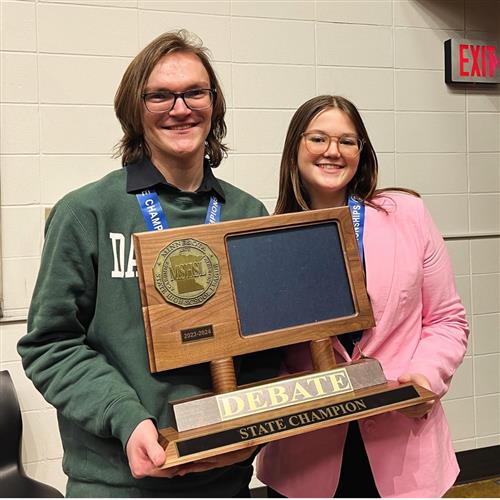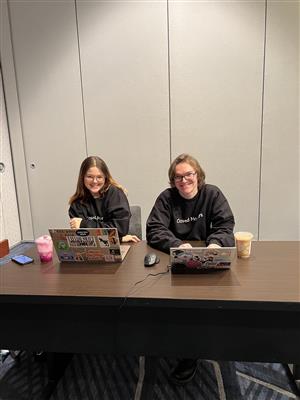Central Students are State Debate Champions

There’s a new state championship banner to soon be hung in the office at Central Senior High School. The recipients? Sophomore Kiernan Baxter-Kauf and junior Max Ulven, the new Minnesota State High School League winners of the Debate State Championship (public policy division).
Kiernan is an only child who was “never a quiet kid”, whose parents brought her to events composed of mostly grown-ups. Max has always enjoyed “learning about stuff” and doing research, but said “I think I was more quiet than Kiernan ever was” with a chuckle.
That combination of personalities is part of what makes this team of championship quality, along with their dedication and competitiveness, says Central’s debate coach Steven Jents.
“We like to let the students pick their own partners,” Jents said. “It lends itself to longer partnerships. They may select someone who’s more dedicated and is likely to spend an extreme amount of time outside of practice and meets. The proof is in pudding with these two. They’re the most competitive debaters I’ve seen at Central in nine years. They’re very competitive and very, very, very dedicated.”
Kiernan estimated that she spends as much time doing research on debate weeks as she does homework. Max said he spends one to two hours per night preparing for weekend competitions. They both said it will take as much free time as you’re willing to put in.
 As for the tournament itself, it was a culmination of more than a year on a national debate topic: income redistribution. Teams had to debate both pros and cons of topics such as expanding social security, income inequality, and guaranteed jobs for all regardless of work history.
As for the tournament itself, it was a culmination of more than a year on a national debate topic: income redistribution. Teams had to debate both pros and cons of topics such as expanding social security, income inequality, and guaranteed jobs for all regardless of work history.
“You spent literally a whole year,” Max said. “And I’m already looking at our topic for next year. When you’re defending the resolution, we focused a lot on the idea that the government should provide jobs regardless of work history. Then you have to debate other teams about that idea.”
As Kiernan was quick to point out, you then have to defend the opposite side.
“It can be hard,” she said. “You have to advocate for a jobs guarantee, but then in another hour argue that it’s a terrible idea.”
There is literature that each resolution could hurt or harm the economy, or have political backlash you don’t consider, she explained.
There are other tournaments in Minnesota sponsored by the Urban Debate League and other organizations. This duo will compete at nationals in both Evanston, Ill., and Des Moines, Iowa.
Jents’ eyes brighten when he’s asked what his pitch would be for any students considering (or not even considering) debate.
“As far as extracurricular activities go, it is the strongest correlation between participation and academic success,” he explained. “The skills they get are two of the better soft skills: research, and the ability to stand in front of a room of strangers and talk.”
Jents pulled out a LinkedIn message from a former debate student, now working in Silicon Valley. It said: “Research was by far the most useful skill I learned. It turns out high schoolers are shockingly motivated to find primary and secondary sources and evaluate them critically when it’s structured as a tournament.”
No experience? No problem.
“The debate community is so inclusive and welcoming,” Jents said. “You can’t walk in as a freshman who’s never skated and play hockey. It’s an activity you can come into not having done it before, and be welcomed and on-ramped into a place where you can achieve some success at the varsity level.”




